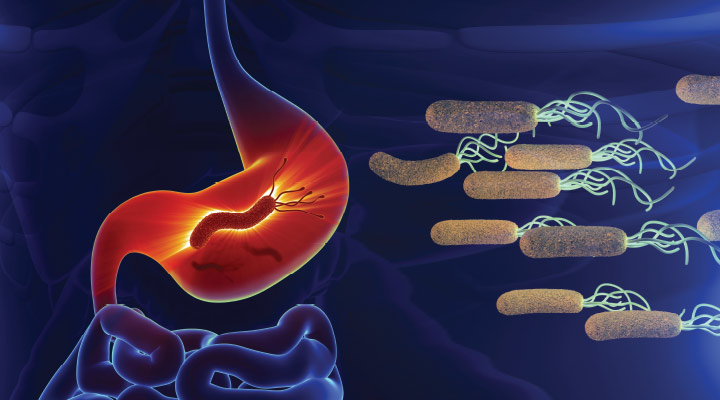|
Tuesday, June 7, 2016
The May 2016 issue of the journal Medicine reports the finding of a two times greater risk of metabolic syndrome among vitamin D deficient men and women who tested positive for the ulcer-causing bacterium Helicobacter pylori (H pylori) compared to those with neither condition.
The study included 792 men and 1,321 women over the age of 30 who resided in northeastern Taiwan. Participants were considered to have metabolic syndrome if they exhibited three or more of five traits (increased waist circumference, blood pressure, triglycerides and glucose, and low serum high-density lipoprotein (HDL) cholesterol levels) that increase the risk of type 2 diabetes and cardiovascular disease. Urea breath tests were administered to detect H pylori infection. Blood samples collected upon enrollment were analyzed for serum 25-hydroxyvitamin D, inflammatory cytokines, adipokines, and other factors.
Metabolic syndrome was found in 26.3% of the participants, infection with H pylori was detected in 53.3% and vitamin D deficiency, defined as serum 25-hydroxyvitamin D levels of less than 20 nanograms per milliliter (ng/mL), was revealed in 19.8%. Those who were infected with H. pylori had a 50% higher adjusted risk of metabolic syndrome compared with uninfected participants. For subjects with vitamin D deficiency, the risk of metabolic syndrome was 42% higher than those with sufficient levels of over 30 ng/mL. Study participants with both vitamin D deficiency and H pylori infection had more than double the risk of metabolic syndrome compared to uninfected subjects with sufficient vitamin D. This group also was found to have low levels of protective HDL cholesterol.
"The correlation analysis revealed that vitamin D deficiency was associated with decreased adiponectin level but also with increased leptin level, a combination that has been linked to HDL cholesterol abnormality," Li-Wei Chen, MD and colleagues note. "However, H pylori infection was not correlated with adiponectin, leptin, or HS-CRP [high-sensitivity C-reactive protein] level. We surmise that the link between H pylori infection and metabolic syndrome status may involve other adipokines or inflammatory cytokines." |
|








